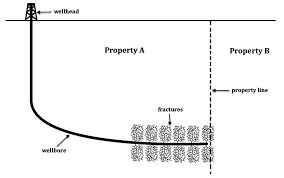
Briggs v. Southwestern Energy Production Company, LLC is good news for Pennsylvania mineral owners bringing claims for subsurface trespass by fracking.
In 2018 in "Briggs 1", the Briggs family sued SWN for subsurface trespass by fracking into the Marsellus formation from wells on SWN's leases that extracted gas from Briggs' property. The Pennsylvania Supreme Court found that because Briggs did not allege any specific physical invasion of their land, summary judgment dismissing Briggs' claims was proper.
In 2022 Briggs filed a new complaint for trespass, conversion, and damages alleging the same claims ("Briggs 2"). The difference in the two suits was Briggs' assertion in Briggs 2 that SWN's drilling and hydraulic fracturing processes employed by wells running along Briggs' land actively injected fluids and proppants into Briggs' land, thereby constituting a physical intrusion that caused gas to flow from Briggs' land into SWN's wellbore.
In response to SWN's motion to dismiss, Briggs amended their complaint to assert claims alleged to have arisen after the date of the Briggs 1 decision.
The question for the Pennsylvania Supreme Court this time around was whether Briggs alleged a continuing trespass and whether their claims were barred by the statute of limitations.
Pennsylvania trespass law
A person is subject to liability for trespass is one intentionally enters land in possession of another or causes a thing or a third person to do so, remains on the land, or fails to remove a thing which one is under a duty to remove.
The failure to remove from land of another a structure, chattel or other thing which he has tortuously erected or placed on the land constitutes a continuing trespass for the entire time during which the thing is wrongfully on the land ... .
... which is not the same as a trespass which permanently changes the physical condition of the land.
Whether a trespass constitutes a permanent or continuing cause of action depends on three factors, all of which the Court concluded were sufficiently alleged, resulting in success for Briggs, at least at this stage of the proceeding.
- First factor: Character of the structure or thing which produces injury. SWN is continuing to actively extract gas from Briggs' property due to proppants from boreholes in SWN's well.
- Second factor: Will consequences of the trespass continue indefinitely? Duration of the gas extraction is unknown and is thus indefinite.
- Third factor: Whether the past and future damages may be predictably ascertained. It is impossible to determine how much will be extracted in order to ascertain the amount of damages but it is known that damages will be sustained in the future.
The Court responded to SWN's statute of limitations defense by ruling that Briggs could not recover damages for time periods before the date of the opinion in Briggs 1.
Your musical interlude, having nothing to do with fracking, Pennsylvania, or anything else even tangentially discussed in this post.
The content of this article is intended to provide a general guide to the subject matter. Specialist advice should be sought about your specific circumstances.

